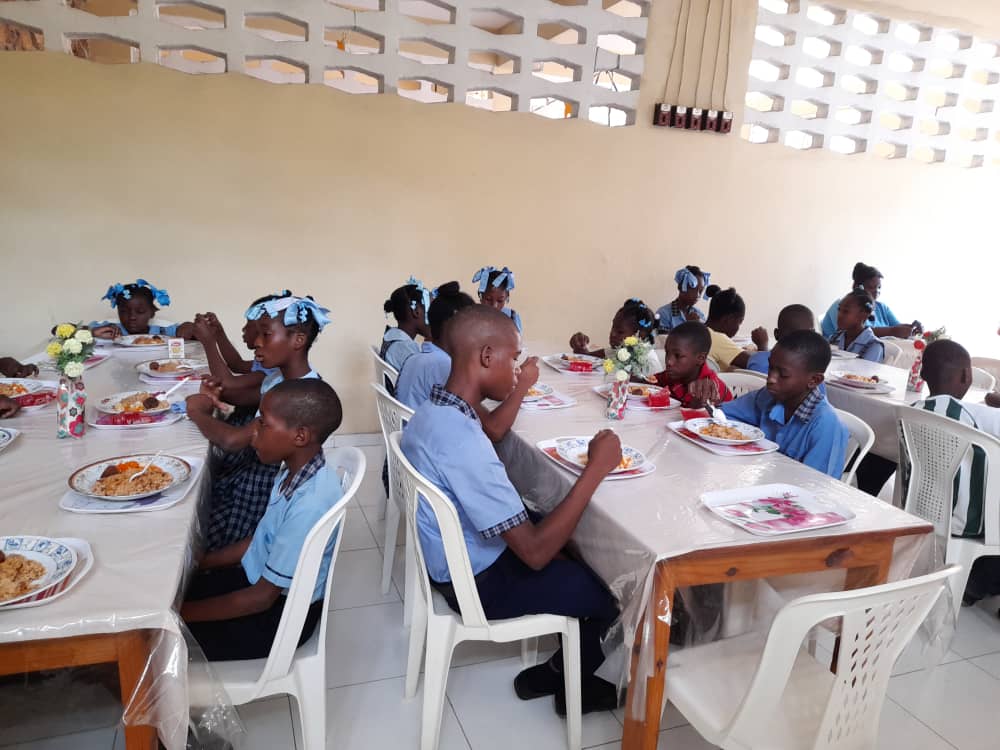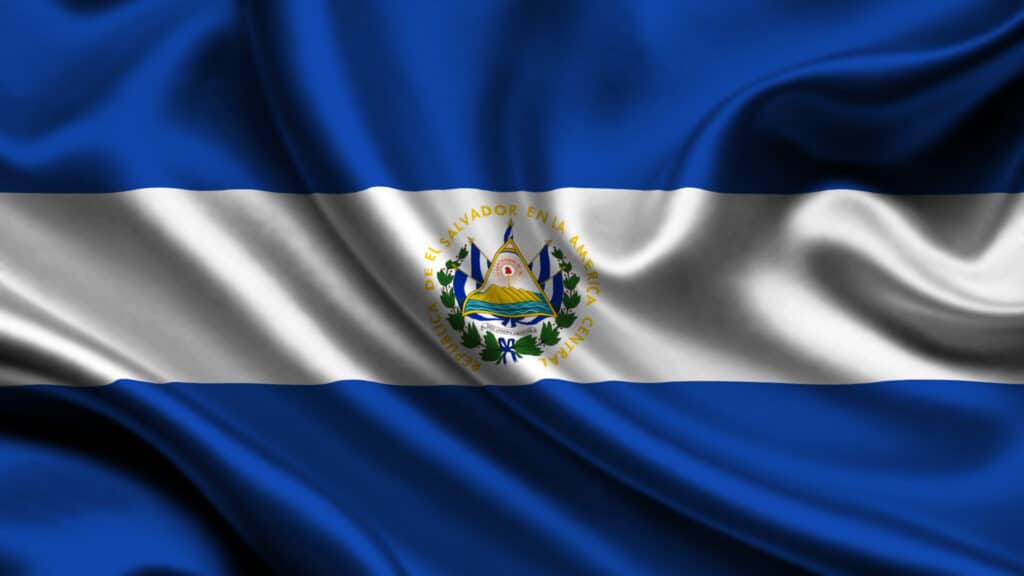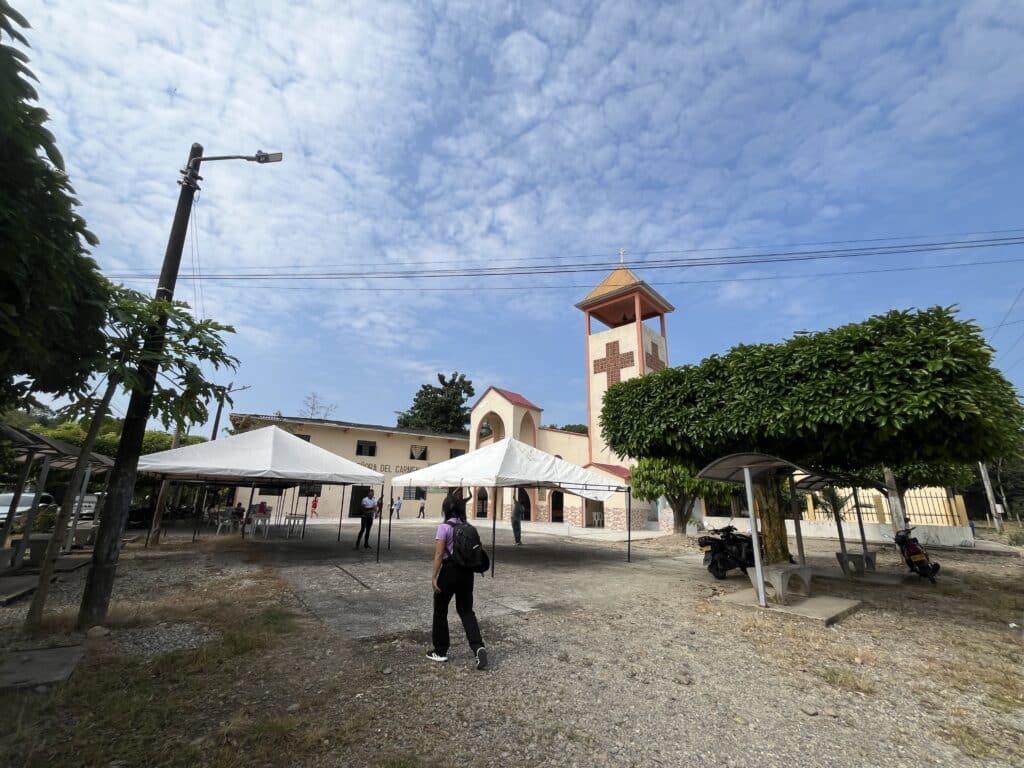Disciples Woman-to-Woman Worldwide Service Project
Colombia and Venezuela
Colombia and Venezuela are located at the northern end of South America. They share a common border and a common history of colonialism before independence was won from the Spanish under the leadership of Simón Bolívar. From 1819 to 1830, the Gran Colombia Republic included Colombia and Venezuela as well as Ecuador and Panama. The border between these two nations is, at times, the focus of contention between the governments of Colombia and Venezuela. The border areas also are home to marginalized indigenous communities.
Global Ministries, the common mission witness of the Christian Church (Disciples of Christ) and the United Church of Christ, has partnered with churches in both Venezuela and Colombia for many years. The Disciple Woman-to-Woman delegation in 2009 was co-led by Global Ministries Latin America and Caribbean Area Executive, Reverend Felix Ortiz, and Office of Disciples Women Program Director and Merger Staff, Sheila Spencer. The group spent time visiting both the Evangelical Pentecostal Union of Venezuela (UEPV) and the Council of Evangelical Churches of Colombia (CEDECOL) and, in particular, the women’s groups of each of these partners. Both partners have requested the accompaniment of Disciples Women as the UEPV and CEDECOL respond to issues of violence against women in their respective situations.
CEDECOL Women’s Network (Colombia)
The Council of Evangelical Churches of Colombia (CEDECOL), a partner of Global Ministries, which, among many things, offers relief and hope to the victims of Colombia’s situation of violence and upheaval. The CEDECOL Network of Christian Women for Life and Peace (Red de Mujeres) is an interdenominational women’s network working throughout Colombia advocating for those affected by the violence. The Women’s Network is committed to be “voices of those who have no voice” and have developed a strategic plan to reduce violence against women.
The CEDECOL Women’s Network offers programs and initiatives to women who face social and economic hardship, as well as those living in the midst of domestic abuse and conflict. The Women’s Network empowers women throughout the country to provide for themselves and their families as well as to promote opportunities for other women in sustainable efforts for their well-being and income-generation. The Network also actively advocates for peace, justice, and equality, three important values often absent in Colombian society. Facing the predominance of “machismo,” with little or weak local institutional support and while facing threats of violent retribution for their efforts, the Network works with women primarily through local church ministries and has achieved a degree of recognition and trust among the communities of women and the churches in many areas of Colombia. Dialogue and fellowship have grown, allowing for more women to hear about the Network and take advantage of the training and support that the ministry provides.
The Women’s Network workplan for reducing violence against women focuses on training for women and the formation of support networks for women who have experienced domestic violence. Training encourages women to act nonviolently and adopt nonviolence as a way of life. It also strengthens self-esteem and an appreciation of human dignity and promotes like support for the dignity of others. Through training and support, women are better prepared to seek change for themselves and their communities.
These new support networks will be organized in each municipality and will be advised by Christian professionals in law, psychology, medicine, and social work. The primary function of these networks will be to serve women by listening, helping to identify and diagnose their problems, documenting the cases, and making recommendations. They are also a way to facilitate and form leadership among the women.
The plan is to train 250 women with the tools to overcome violence against women through working in their churches and municipalities. The Women’s Network will continue to reach out to women in the regions with the most need.
UEPV Women’s Organization (Venezuela)
The Evangelical Pentecostal Union of Venezuela (UEPV) is a grassroots Pentecostal denomination which was established in 1958. It was originally founded by leaders from the Assemblies of God and members of the Pentecostal movement. The UEPV, based in Maracaibo, Venezuela, has been in partnership with Global Ministries for over 40 years.
The UEPV Women’s Organization (UMIFE) believes that the family unit is part of God’s plan through which happiness and quality of life are found and that these things can only be found through peace. The Christian Families for Peace project is based on the study of the concept of peace and through addressing violence in a comprehensive manner. They support women’s rights to live a life free of violence.
With these beliefs as a foundation, the UMIFE believes that a strong family unit is an important Christian value and that violence and mistreatment of women and children must be eradicated. They promote family relationships, based on respect of the rights of all who form part of the family. To do that, all family members must have access to opportunities for personal growth. UMIFE promotes family education centered in religious and socio-cultural values.
The plan for accomplishing these goals is the leading of family workshops and talks at the local and regional levels. Camps also will be organized at the national level. Bible lessons will be provided in the activities as well as pastoral counseling services.
Workshops and talks, camps, Bible lessons, and pastoral counseling will be based on the following:
- The importance of family communication
- Teaching values in the family
- The presence of God in the family
- Treating the female body with dignity in the home
- Keeping family commitments and promises
- Home-based sex education: working toward responsible and dignified sexual health
- Reinforcing the presence of the father figure in the Venezuelan culture
- Horizontal power and authority within family relationships
- Gender relationships in the home
- Eradicating violence and mistreatment in the family
- Prioritizing a family that is beyond machismo
- Building a culture of good treatment and self-esteem in the family
- Distribution of work in the home: reassignment of roles
- Peace as a key biblical concept and the strength that peace brings to a family
- Participating in the defense of women’s rights to live a life free of violence
In order to facilitate all these activities, the UMIFE is seeking support for workshop facilitators, pastoral counselors, coordination, and materials.
The following are examples of how gifts may be used for UMIFE:
- $50 can support the participation of one woman in a two-day workshop
- $75 can pay for registration and meals for a camp focused on reducing violence
- $100 could help produce educational materials for use with groups and families
Gifts for the Disciples Woman-to-Woman Worldwide service project for Responding to Violence against Women in Colombia and Venezuela may be made to Global Ministries. Please indicate that the gift is for the WWW Colombia/Venezuela Project. Funds will be divided between the two partners.
Support this Ministry
To make a gift for this ministry online or by check use the online donation page.
- 100% of your gift will be directed to Disciples Woman-to-Woman Worldwide Service Project
- You will receive updates on the work in this area as they become available
- Share in the vision of God’s abundant life for all people
Related Content
House of Hope in Haiti: ‘We Must Act’
Since the assassination of President Jovenel Moise in 2021, Haiti has seen a rise in gang activity...
Read MoreA message of solidarity with the Lutheran Synod of El Salvador after the passing of Bishop Medardo Gomez
Please join Global Ministries in prayer with the Lutheran Synod of El Salvador. Dear Bishop...
Read MoreThe Mass of the (Amazonian) World
Written by: Alex Maldonado-Lizardi and Xiomara Cintron-Garcia who serve with the Christian...
Read More


